Buddleia For Bees And Butterflies
Question:
Do bees like buddleias ('butterfly bush') as well as butterflies?
The short answer:
Yes, they certainly do! A variety of bees species enjoy feeding on the flowers. See below for photographs.
Growing buddleias for bees and butterflies
Commonly known as the 'butterfly bush', buddleia (or buddleja) are also popular shrubs with bees as well as butterflies.
If you include a buddleia in your garden, you will be providing food for both. Moths also visit this hardy bush, and in some countries they may attract humming birds.
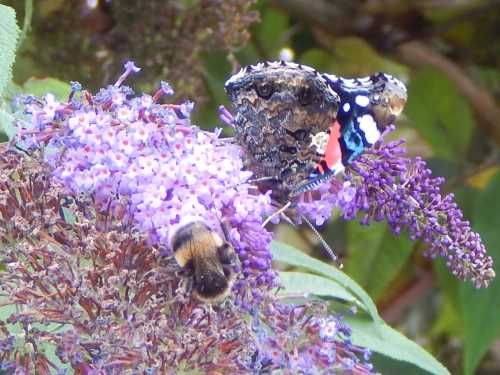 White-tailed bumble bee and red admiral butterfly on buddleia flower.
White-tailed bumble bee and red admiral butterfly on buddleia flower.In my experience, buddleia are tough, hardy flowering shrubs, and some specimens appear to grow almost anywhere.
There are climbing varieties available, and some specimens will grow into trees.
In the local area where I live, a few buddleia have established themselves in the wild. In one location, the buddleia supplement the flowers growing in a wooded area and historic brownfield site.
They also grow nearby in an exposed, sandy coastal area. However, I have even seen some especially tough specimens growing out of walls at the side of railway lines.
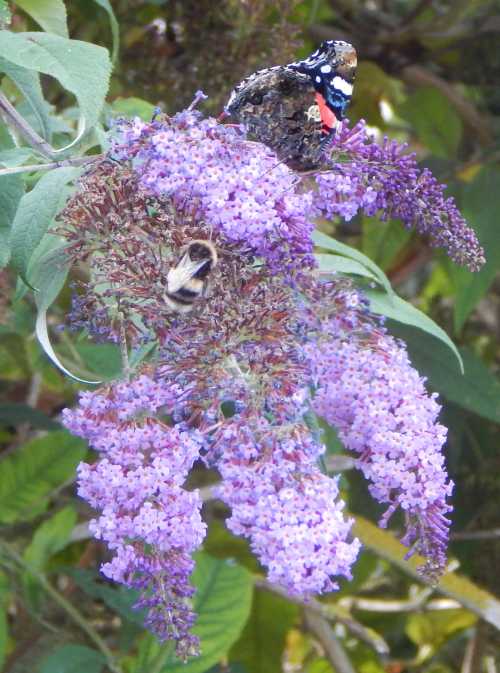 The lovely panicles feature masses of small, tubular flowers popular with bees and butterflies alike.
The lovely panicles feature masses of small, tubular flowers popular with bees and butterflies alike.Although I have buddleia in my garden, I love to see the wild-growing shrubs and look out for different species of butterflies. In addition to whites, other species such as red admiral, comma, painted lady, peacock and tortoiseshell butterflies are fairly common in the area.
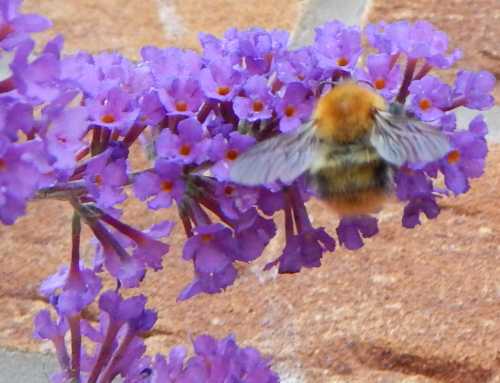 Common carder bumble bee foraging on buddleia in our garden.
Common carder bumble bee foraging on buddleia in our garden.
The photographs of these deeper pink buddleias were taken in my garden. I love buddleias, and we have had several over the years, occasionally replacing them during changes made to the garden, usually opting for various shades of pink, rather than the paler lilac we see growing around us.
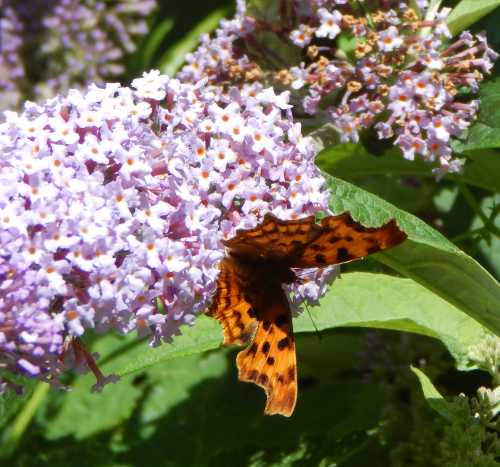 Comma butterfly foraging on buddleia growing in the wild locally.
Comma butterfly foraging on buddleia growing in the wild locally.Butterflies and bees certainly visit every year, although I have never been quick enough to take a photograph of the hummingbird-hawkmoths we have seen on them from time to time.
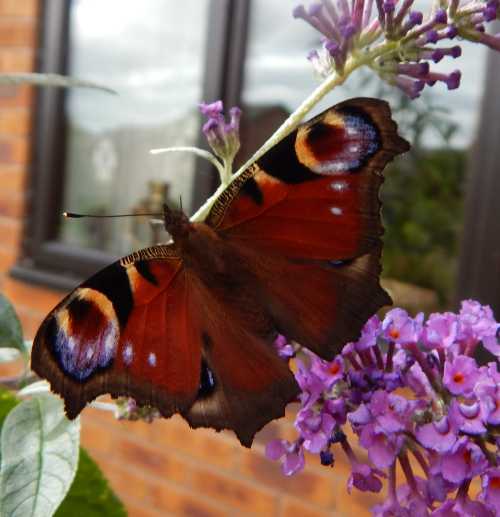 Peacock butterfly on buddleia in our front garden.
Peacock butterfly on buddleia in our front garden.I sometimes extend the flowering season by removing dead flowers.
You may see caterpillars feeding on leaves - but of course, without the caterpillars, we can't have the butterflies!
The lovely panicles of buddleia feature masses of small, tubular flowers most commonly seen in shades of pink, lilac and purple, although white specimens are available.
Buddleia with yellow and orange florets exist too, although I have no information or experience with regard to their attractiveness to bees and butterflies or otherwise.
Update: As of 2023, I also have a yellow variety, which is long flowering and popular with pollinators.
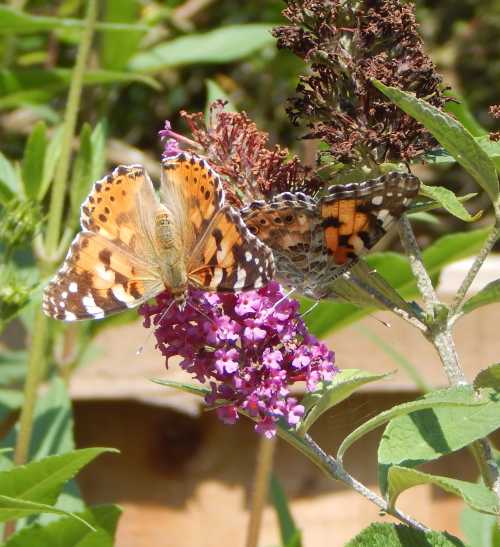 Two painted lady butterflies feeding on buddleia flowers in my garden.
Two painted lady butterflies feeding on buddleia flowers in my garden.Buddleias are widely available in plant nurseries and garden centres ready for you to plant out right away, though it's possible to take cuttings in summer and autumn. Prune them in early spring.
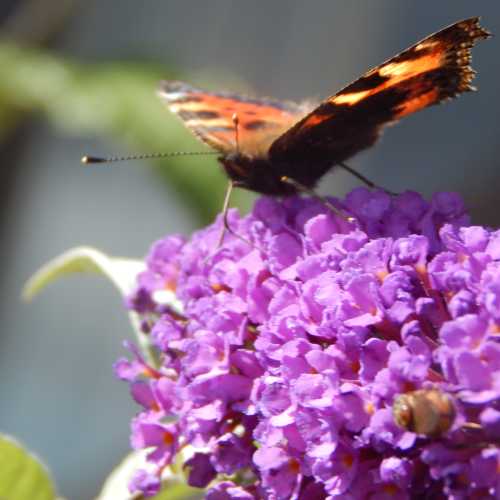 Small tortoiseshell butterfly on one of our buddleias.
Small tortoiseshell butterfly on one of our buddleias.More articles about bees and plants
- Bees And Brambles: The Value Of Brambles To Bees Also known as blackberry bush, research shows each bramble flower secretes lots of nectar for bees!
- Bees And Bee Balm Bee Balm (Monarda) - also known as 'Bergamot) is a herbaceous perennial which is attractive for bees.
- 30 Fantastic Garden Flowers For Bees Flowering plant recommendations for the perfect bee garden.
- Bees love lupins – but so do slugs and snails, so what can you do? Here's a way to protect your lupins....using garlic!
- Plant Oregano For Bees (Marjoram) It's rich in nectar, and attracts bees, butterflies and hoverflies in summer. Here's how to plant it.
- Fennel Pollen And Nectar Bees love fennel! How to grow it, gather it, and the many uses of fennel seeds and pollen.
If you found this page helpful or interesting, I'd really be grateful if you would share it with others - if not this page, perhaps another, such as Gardening For Bees.
Thank you so much :) .